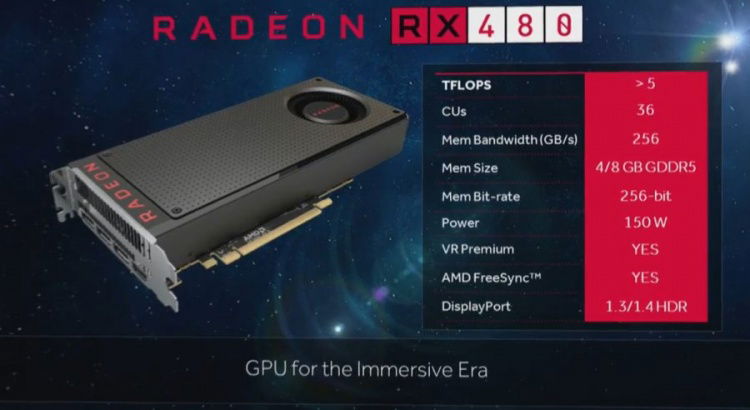By now everyone is aware of the specific issue with AMD’s latest GPU, the RX 480. With claims that have been backed up with proof, concerns regarding the power draw from a motherboard’s PCIe bus, the concerns are that this could cause those motherboards to experience issues or die altogether. If you aren’t completely up to speed, not to worry as PC Perspective has a fantastic write up of what is going on here.
Thankfully, AMD has finally responded in a positive light and has announced via their Facebook page they are working on a new driver that will address the power concerns. The new driver was promised to be delivered in 48 hours from their posting, which was yesterday. Meaning we should see this new driver no later than tomorrow.
We promised an update today (July 5, 2016) following concerns around the Radeon™ RX 480 drawing excess current from the PCIe bus. Although we are confident that the levels of reported power draws by the Radeon RX 480 do not pose a risk of damage to motherboards or other PC components based on expected usage, we are serious about addressing this topic and allaying outstanding concerns. Towards that end, we assembled a worldwide team this past weekend to investigate and developa driver update to improve the power draw. We’re pleased to report that this driver—Radeon Software 16.7.1—is now undergoing final testing and will be released to the public in the next 48 hours.
In this driver we’ve implemented a change to address power distribution on the Radeon RX 480 – this change will lower current drawn from the PCIe bus.
Separately, we’ve also included an option to reduce total power with minimal performance impact. Users will find this as the “compatibility” UI toggle in the Global Settings menu of Radeon Settings. This toggle is “off” by default.Finally, we’ve implemented a collection of performance improvements for the Polaris architecture that yield performance uplifts in popular game titles of up to 3%. These optimizations are designed to improve the performance of the Radeon RX 480, and should substantially offset the performance impact for users who choose to activate the “compatibility” toggle.
AMD is committed to delivering high quality and high performance products, and we’ll continue to provide users with more control over their product’s performance and efficiency. We appreciate all the feedback so far, and we’ll continue to bring further performance and performance/W optimizations to the Radeon RX 480.
Despite the negativity that AMD has received during the release of the RX 480, I’m glad to see that they are attempting to turn this around. Sure, they should have realized that releasing the card in the state that it is currently in would get noticed, too with I wish they would have stated the issues from the start. Perhaps it was a rushed attempt to steal some of Nvidia’s thunder, to which they succeeded, though this definitely isn’t something that anyone of us should have to accept as the norm. Hopefully, when this new driver is released and after the major tech reviewers put it and the RX 480 through the paces, we’ll see some positive feedback.
That or I end up taking my very own RX 480 back to the store, something I really don’t want to do. In the meanwhile, I’ve applied the undervolting method that was detailed by Legit Reviews. If you have a RX 480 and are concerned about the power draw, you can apply the same method by heading here.


